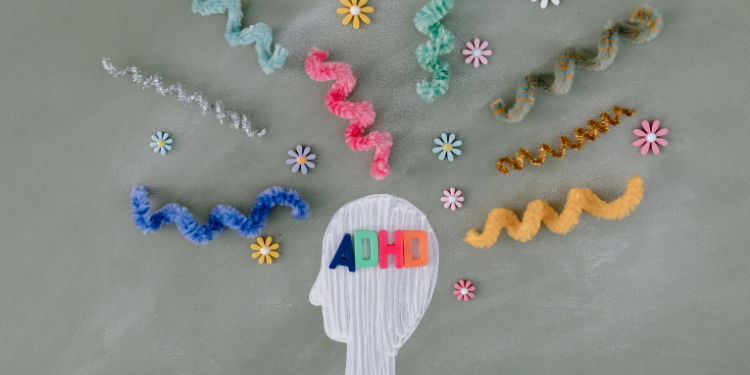Rev. Simon Carter was recently interviewed in our first MH+ PCI Spotlight Session, giving an insight into his lived experience of Attention Deficit and Hyperactivity Disorder, or ADHD.
Written by Kate Morris, ADM Fellow 2024, writer for anextraordinarynormal.substack.com
If you haven’t already, make sure you also read Living with Adult ADHD – part 1, in which Kate summarises the presentation from clinical psychologist, Sarah Hindle, who spoke about Adult Attention Deficit and Hyperactivity Disorder, or ADHD at our first Spotlight Session in March 2024.
Discovering ADHD
Sometimes you don’t know what you don’t know. For Simon, this was the case for him and ADHD. When his family discovered that his two sons had ADHD, and their understanding grew, Simon discovered that his brain also fit the ADHD description.
Simon is not alone. More than a million people in Australia have been diagnosed with ADHD[1], many were diagnosed as adults, just as Simon was a year ago.
Simon paused as he found the words to describe what it was like to process this new understanding of himself. He spoke of the grief that came with identification, saying he looked back and wondered how life would have been different if he had known 20 years earlier. Finally, he could understand how he functions from a fuller perspective.
ADHD and medication
With this new understanding of his brain, Simon chose to access medication, with the help of his psychiatrist. For the past year, Simon has used Ritalin. Since then, Simon feels his brain function has become free to flourish. His wife, family, colleagues, and the church community have all enjoyed the fruits of this growth, benefiting from the positive changes.
Simon reports that his wife, Erin, has noticed that he is more organised and manages time better. Simon’s family have enjoyed more time with him as deadlines no longer suddenly appear, snatching him from them. Colleagues have mentioned to Simon that they appreciate his more comprehensive decision-making style and meetings that flow more smoothly. In church, Simon has received a comment that his sermons are easier to follow. Simon laughs as he wonders aloud what meetings and sermons must have previously lacked, perhaps a small window into his grief that diagnosis had been so late.
Simon reflected that he can now more easily complete work tasks and manage time. In the past, working to complete a task early had been “like trying to wade through treacle”. Looming deadlines brought the stress that was the fuel to launch into a task. When the deadline was distant, there was no fuel, and so launch was impossible. Now, with medication, Simon can begin a task early, even completing it long before the deadline, leaving him with more time with his wife and children.
ADHD and ministry
Simon has been in ministry on many fronts and he reflects that, even before diagnosis, he developed systems that allow him to harness the benefits of his strengths. For example, he is deeply enthusiastic to see people come to know Jesus, and the ADHD hyperfocus has enabled him to focus energy into that. Simon sees big-picture thinking as one of his strengths, and he ensures he has people around him who help where he lacks, especially with fine details. He points out the beauty of this picture: people working according to their gifts, just as the body of Christ has different parts.
ADHD and church
Church environments can pose challenges for people who operate differently from the majority. Simon believes churches should prioritise better care for people with ADHD, emphasising the importance of understanding, love and support for everyone. Simon encourages us to remember that no two people are alike and so it is vital to ask people with ADHD for insights into their own needs. He hopes to see a growing appreciation for the skills and abilities that neurodivergent people bring to the church when their voices are heard.
ADHD, prayer, and Bible reading
Like all Christians, a person with ADHD is called to seek to bring glory to God in everything they do. Simon encourages those with ADHD to harness their natural creativity when working out how to do this.
Reading God’s Word and striving to understand it is a remarkable privilege, but one that many find challenging if they find focus and consistency difficult. Simon can relate to this. Simon spoke of sometimes finding renewed energy to weave together a new Bible-reading routine reflecting his devotion and drive. Yet, disappointingly, he would inevitably watch it unravel as the days passed. Each time, as the routine slipped away, he would chastise himself for failing to meet the new standard, spiraling into self-deprecation and shame.
Understanding how his brain operates has liberated him from this cycle and empowered him to leverage his strengths. With a laugh, Simon points out that the same brain that struggles to hold onto a routine is also blessed by God with remarkable problem-solving abilities. So, if the Bible reading plan isn’t working, he can devise new solutions, choose one, and commit to it for a while. If it fails, he can pivot to another plan. Simon suggests there may be some tools that could also help, such as the app, Prayermate, that helps you remember to pray. Recognising that some approaches work for some people and not for others, Simon suggests that we press on with Bible reading and prayer in a way that works for us. He advises us to be prepared to pivot when necessary, and ready to continue the journey for the glory of God.
*I have used person-first language in keeping with the language Simon chose to use.
Read Living with Adult ADHD – part 1, in which Kate summarises the presentation from clinical psychologist, Sarah Hindle, who spoke about Adult Attention Deficit and Hyperactivity Disorder, or ADHD at our first Spotlight Session in March 2024.
[1] https://www.smh.com.au/national/why-has-everyone-suddenly-got-adhd-20240214-p5f4rr.html



